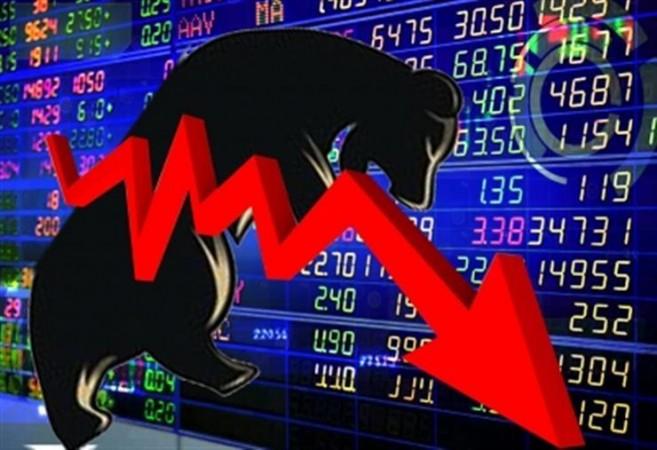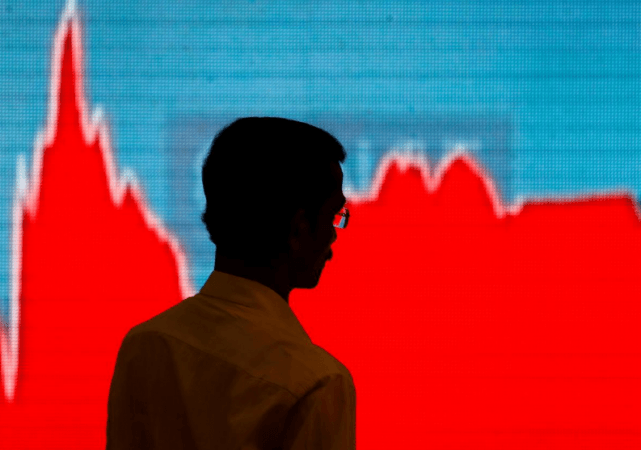On Friday, Dalal Street succumbed to severe selling pressure, reflecting a global stock market meltdown as investors anticipated slower global growth amid central bank policy tightening. A dramatic decrease in the rupee, along with a surge in crude oil prices and unabated withdrawals of foreign funds, exacerbated the problems.

The 30-stock BSE Sensex fell 866.65 points, or 1.56 per cent, to 54,835.58. It fell 1,115.48 points, or 2%, to 54,586.75 during the day. Similarly, the NSE Nifty index fell 271.40 points, or 1.63 per cent, to 16,411.25. Axis Bank, Bajaj Finserv, Nestle, Wipro, HDFC, Infosys, HDFC Bank, and UltraTech Cement were the worst performers among the Sensex components, falling 4.91 per cent. Tech Mahindra, PowerGrid, ITC, SBI, NTPC, and Sun Pharma, on the other hand, had increases of up to 2.21 per cent. The Sensex fell 2,225.29 points, or 3.89 per cent, over the week, while the Nifty fell 691.30 points or 4.04 per cent.
The stock market benchmarks sank 4% this week, registering the worst performance since November 2021. The two metrics are also down for the fourth week in a row. Bearish market breadth was tilted in their favour. About 838 stocks advanced, 2,516 declined and 106 remained unchanged. The twins Infosys and HDFC are the biggest Sensex drags.

Shock waves in Global Markets
The Global markets, which had first brushed off the US Federal Reserve's rate move, plummeted on increased concerns about the economy amid interest rate hikes and Chinese lockdowns. Meanwhile, on Thursday, the Bank of England increased its key interest rate to its highest level in 13 years. Markets in Hong Kong, Shanghai, and Korea all closed the day lower, while Tokyo concluded the day higher. In the afternoon session, European exchanges were trading in the red. Wall Street had plunged in overnight trade on Thursday.

















